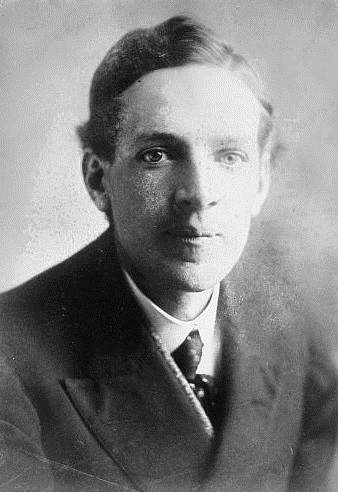|
World Committee Against War And Fascism
The World Committee Against War and Fascism was an international organization sponsored by the Communist International, that was active in the struggle against Fascism in the 1930s. During this period Adolf Hitler came to power in Germany, Italy invaded Ethiopia and the Spanish Civil War broke out. Although some of the women involved were Communists whose priority was preventing attacks on the Soviet Union, many prominent pacifists with different ideologies were members or supporters of the committee. The World Committee sponsored subcommittees for Women and Students, and national committees in countries that included Spain, Britain, Mexico and Argentina. The Women's branches were particularly active and included feminist leaders such as Gabrielle Duchêne of France, Sylvia Pankhurst of Britain and Dolores Ibárruri of Spain. Background Japan conquered Manchuria in 1932 and support for the Nazis was growing in Germany that year, making the Soviet Union fear encirclement and attack ... [...More Info...] [...Related Items...] OR: [Wikipedia] [Google] [Baidu] |
International Non-governmental Organization
An international non-governmental organization (INGO) is an organization which is independent of government involvement and extends the concept of a non-governmental organization (NGO) to an international scope. NGOs are independent of governments and can be seen as two types: ''advocacy NGOs'', which aim to influence governments with a specific goal, and ''operational NGOs'', which provide services. Examples of NGO mandates are environmental preservation, human rights promotions or the advancement of women. NGOs are typically not-for-profit, but receive funding from companies or membership fees. Many large INGOs have components of operational projects and advocacy initiatives working together within individual countries. The technical term "international organizations" describes intergovernmental organizations (IGOs) and include groups such as the United Nations or the International Labour Organization, which are formed by treaties among sovereign states. In contrast, INGOs are ... [...More Info...] [...Related Items...] OR: [Wikipedia] [Google] [Baidu] |
Bertrand Russell
Bertrand Arthur William Russell, 3rd Earl Russell, (18 May 1872 – 2 February 1970) was a British mathematician, philosopher, logician, and public intellectual. He had a considerable influence on mathematics, logic, set theory, linguistics, artificial intelligence, cognitive science, computer science and various areas of analytic philosophy, especially philosophy of mathematics, philosophy of language, epistemology, and metaphysics.Stanford Encyclopedia of Philosophy"Bertrand Russell" 1 May 2003. He was one of the early 20th century's most prominent logicians, and a founder of analytic philosophy, along with his predecessor Gottlob Frege, his friend and colleague G. E. Moore and his student and protégé Ludwig Wittgenstein. Russell with Moore led the British "revolt against idealism". Together with his former teacher A. N. Whitehead, Russell wrote ''Principia Mathematica'', a milestone in the development of classical logic, and a major attempt to reduce the whole ... [...More Info...] [...Related Items...] OR: [Wikipedia] [Google] [Baidu] |
André Gide
André Paul Guillaume Gide (; 22 November 1869 – 19 February 1951) was a French author and winner of the Nobel Prize in Literature (in 1947). Gide's career ranged from its beginnings in the Symbolism (arts), symbolist movement, to the advent of Anti-imperialism, anticolonialism between the two World Wars. The author of more than fifty books, at the time of his death his obituary in ''The New York Times'' described him as "France's greatest contemporary man of letters" and "judged the greatest French writer of this century by the literary cognoscenti." Known for his fiction as well as his autobiographical works, Gide exposed to public view the conflict and eventual reconciliation of the two sides of his personality (characterized by a Protestant austerity and a transgressive sexual adventurousness, respectively), which a strict and moralistic education had helped set at odds. Gide's work can be seen as an investigation of freedom and empowerment in the face of moralistic and pur ... [...More Info...] [...Related Items...] OR: [Wikipedia] [Google] [Baidu] |
Salle Pleyel
The Salle Pleyel (, meaning "Pleyel Hall") is a concert hall in the 8th arrondissement of Paris, France, designed by acoustician Gustave Lyon together with architect Jacques Marcel Auburtin, who died in 1926, and the work was completed in 1927 by his collaborators André Granet and Jean-Baptiste Mathon. Its varied programme includes contemporary and popular music. Until 2015, the hall was a major venue for classical orchestral music, with Orchestre de Paris and the Orchestre Philharmonique de Radio France as resident ensembles. Early history An earlier salle Pleyel seating 300 opened in December 1839 at 22 rue Rochechouart. From 1849 to 1869, impresario Charlotte Tardieu organized four chamber concerts a year at the hall. It saw the premieres of many important works, including Chopin's Ballade Op.38 and Scherzo Op.39 (April 26, 1841), Ballade Op.47 (February 21, 1842) and Barcarolle Op.60 (February 16, 1848), the second (1868) and fifth (1896) piano concertos by Saint-Saë ... [...More Info...] [...Related Items...] OR: [Wikipedia] [Google] [Baidu] |
Reichstag Fire
The Reichstag fire (german: Reichstagsbrand, ) was an arson attack on the Reichstag building, home of the German parliament in Berlin, on Monday 27 February 1933, precisely four weeks after Nazi leader Adolf Hitler was sworn in as Chancellor of Germany. Marinus van der Lubbe, a Dutch "council communist", was the apparent culprit; however, Hitler attributed the fire to Communist agitators. He used it as a pretext to claim that Communists were plotting against the German government, and induced President Paul von Hindenburg to issue the Reichstag Fire Decree suspending civil liberties, and pursue a "ruthless confrontation" with the Communists. This made the fire pivotal in the establishment of Nazi Germany. The first report of the fire came shortly after 9:00p.m., when a Berlin fire station received an alarm call. By the time police and firefighters arrived, the Chamber of Deputies (the lower house) was engulfed in flames. The police conducted a thorough search inside the building ... [...More Info...] [...Related Items...] OR: [Wikipedia] [Google] [Baidu] |
Paris
Paris () is the capital and most populous city of France, with an estimated population of 2,165,423 residents in 2019 in an area of more than 105 km² (41 sq mi), making it the 30th most densely populated city in the world in 2020. Since the 17th century, Paris has been one of the world's major centres of finance, diplomacy, commerce, fashion, gastronomy, and science. For its leading role in the arts and sciences, as well as its very early system of street lighting, in the 19th century it became known as "the City of Light". Like London, prior to the Second World War, it was also sometimes called the capital of the world. The City of Paris is the centre of the Île-de-France region, or Paris Region, with an estimated population of 12,262,544 in 2019, or about 19% of the population of France, making the region France's primate city. The Paris Region had a GDP of €739 billion ($743 billion) in 2019, which is the highest in Europe. According to the Economist Intelli ... [...More Info...] [...Related Items...] OR: [Wikipedia] [Google] [Baidu] |
Georgi Dimitrov
Georgi Dimitrov Mihaylov (; bg, Гео̀рги Димитро̀в Миха̀йлов), also known as Georgiy Mihaylovich Dimitrov (russian: Гео́ргий Миха́йлович Дими́тров; 18 June 1882 – 2 July 1949), was a Bulgarian communist politician. He was the first communist leader of Bulgaria from 1946 to 1949. Dimitrov led the Communist International from 1935 to 1943. Early life Dimitrov was born in Kovachevtsi in present-day Pernik Province, the first of eight children, to refugee parents from Ottoman Macedonia (a mother from Bansko and a father from Razlog). His father was a rural craftsman, forced by industrialisation to become a factory worker. His mother, Parashkeva Doseva, was a Protestant Christian, and his family is sometimes described as Protestant. The family moved to Radomir and then to Sofia. One of Georgi's brothers, Nikola, moved to Russia, joined the Bolsheviks in Odessa until he was arrested in 1908 and exiled to Siberia, where he died in ... [...More Info...] [...Related Items...] OR: [Wikipedia] [Google] [Baidu] |
Executive Committee Of The Communist International
The Executive Committee of the Communist International, commonly known by its acronym, ECCI (Russian acronym ИККИ), was the governing authority of the Comintern between the World Congresses of that body. The ECCI was established by the Founding Congress of the Comintern in 1919 and was dissolved with the rest of the Comintern in May 1943. Organizational history Establishment The Communist International was established at a gathering convened in Moscow at the behest of the Russian Communist Party (Bolsheviks). As early as December 24, 1918, a radio appeal had been issued by the ruling party of Soviet Russia calling on "communists of all countries" to boycott any attempts of reformists to reestablish the Second International, but to instead "rally around the revolutionary Third International." The formal call for a conference of revolutionary socialist political parties and radical trade unions espousing revolutionary industrial unionism had been issued on January 24, 1919, wit ... [...More Info...] [...Related Items...] OR: [Wikipedia] [Google] [Baidu] |
Berlin
Berlin ( , ) is the capital and largest city of Germany by both area and population. Its 3.7 million inhabitants make it the European Union's most populous city, according to population within city limits. One of Germany's sixteen constituent states, Berlin is surrounded by the State of Brandenburg and contiguous with Potsdam, Brandenburg's capital. Berlin's urban area, which has a population of around 4.5 million, is the second most populous urban area in Germany after the Ruhr. The Berlin-Brandenburg capital region has around 6.2 million inhabitants and is Germany's third-largest metropolitan region after the Rhine-Ruhr and Rhine-Main regions. Berlin straddles the banks of the Spree, which flows into the Havel (a tributary of the Elbe) in the western borough of Spandau. Among the city's main topographical features are the many lakes in the western and southeastern boroughs formed by the Spree, Havel and Dahme, the largest of which is Lake Müggelsee. Due to its l ... [...More Info...] [...Related Items...] OR: [Wikipedia] [Google] [Baidu] |
Sherwood Anderson
Sherwood Anderson (September 13, 1876 – March 8, 1941) was an American novelist and short story writer, known for subjective and self-revealing works. Self-educated, he rose to become a successful copywriter and business owner in Cleveland and Elyria, Ohio. In 1912, Anderson had a nervous breakdown that led him to abandon his business and family to become a writer. At the time, he moved to Chicago and was eventually married three additional times. His most enduring work is the short-story sequence ''Winesburg, Ohio,'' which launched his career. Throughout the 1920s, Anderson published several short story collections, novels, memoirs, books of essays, and a book of poetry. Though his books sold reasonably well, '' Dark Laughter'' (1925), a novel inspired by Anderson's time in New Orleans during the 1920s, was his only bestseller. Early life Sherwood Berton Anderson was born on September 13, 1876, at 142 S. Lafayette Street in Camden, Ohio, a farming town with a population of ar ... [...More Info...] [...Related Items...] OR: [Wikipedia] [Google] [Baidu] |
Upton Sinclair
Upton Beall Sinclair Jr. (September 20, 1878 – November 25, 1968) was an American writer, muckraker, political activist and the 1934 Democratic Party nominee for governor of California who wrote nearly 100 books and other works in several genres. Sinclair's work was well known and popular in the first half of the 20th century, and he won the Pulitzer Prize for Fiction in 1943. In 1906, Sinclair acquired particular fame for his classic muck-raking novel, ''The Jungle'', which exposed labor and sanitary conditions in the U.S. meatpacking industry, causing a public uproar that contributed in part to the passage a few months later of the 1906 Pure Food and Drug Act and the Meat Inspection Act. In 1919, he published ''The Brass Check'', a muck-raking exposé of American journalism that publicized the issue of yellow journalism and the limitations of the "free press" in the United States. Four years after publication of ''The Brass Check'', the first code of ethics for journ ... [...More Info...] [...Related Items...] OR: [Wikipedia] [Google] [Baidu] |



_1982%2C_MiNr_Block_068.jpg)




